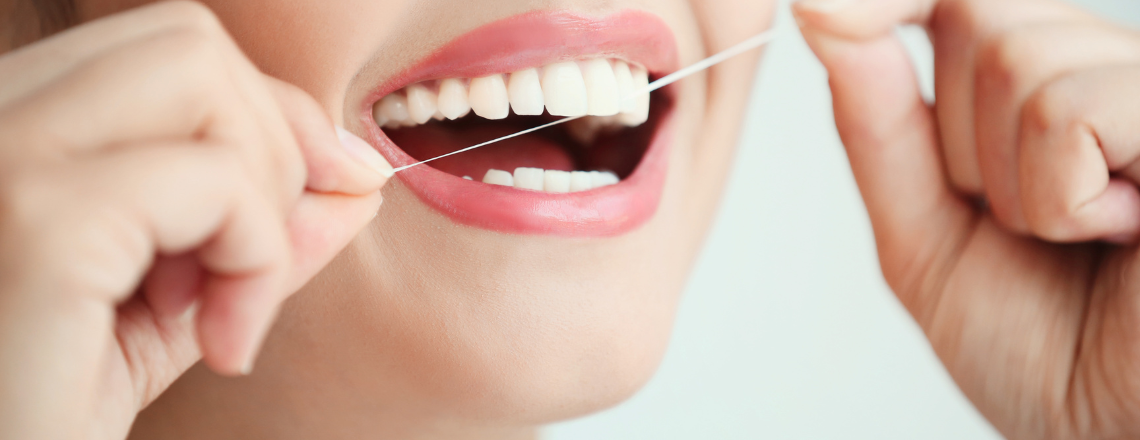If you’ve been following the news lately, then you’ve probably seen the recent stories alleging flossing is found to not provide medical benefits.
These articles say that daily flossing showed little to no impact on reducing disease-causing plaque on teeth. In this article, The Associated Press stated:
“The AP looked at the most rigorous research conducted over the past decade, focusing on 25 studies that generally compared the use of a toothbrush with the combination of toothbrushes and floss. The findings? The evidence for flossing is 'weak, very unreliable,' of 'very low' quality, and carries 'a moderate to large potential for bias.'"
The article goes on to discuss how flossing does not provide a benefit to oral health, and that Americans have been misinformed that the time spent flossing helps them in the long run.
Dental Associates Firmly Disagrees with Recent Statements Questioning Flossing
We believe that flossing is an important part of a proper daily oral hygiene routine, and that flossing is an added benefit in ensuring your mouth is healthy.
We recommend that you and your family keep flossing as an important element to achieving and maintaining good oral health. Although there may be some discrepancies between certain studies proving the efficacy of flossing, clinical observation confirms that our patients who floss daily have improved oral health, less gum inflammation, and fewer cavities.
Patients who do not floss are at a greater risk of gingival inflammation and ultimately periodontal disease, which results when bacteria under the gums becomes so significant that the gums become progressively inflamed. Periodontal disease is preventable, and proper flossing habits are important to reducing bacteria under the gums that cause periodontal disease.
Dr. John Zweig, Chief Dental Officer at Dental Associates, provides his insight on these recent allegations.
“Although the studies proving the effectiveness of flossing may be insufficient, practicing dentists and hygienists note the decrease in the risk of periodontal disease among their patients who floss on a daily basis. Still, those with periodontal disease or a history of periodontal disease remain the most challenged. Periodontal disease and its effects, such as receding gum lines, result in the patient having to clean additional tooth surface and flossing becomes more of a challenge. I’ve observed that my patients who are serious about fighting their disease have successfully controlled their disease by flossing. Although good brushing cleans the surfaces of teeth, flossing helps to clean the surfaces in between teeth where the brush misses and keeps the harmful bacteria from accumulating under the gums.”
Why Might These Studies Show Discrepancies?
Dental Associates notes that one reason flossing may not be seen as effective is because it’s difficult for patients to remain diligent about their daily flossing. It takes personal discipline to master flossing and become efficient at it, and it also takes time for gum tissue to respond to the flossing.
Even still, discouraging the important daily oral hygiene habit of flossing is not healthy for multiple reasons.
In dentistry, we have something called “evidence-based dentistry.” As stated by the American Dental Association (ADA), evidence-based dentistry is “an approach to oral health care that requires the judicious integration of systematic assessments of clinically relevant scientific evidence, relating to the patient’s oral and medical condition and history, with the dentist’s clinical expertise and the patient’s treatment needs and preferences.”
All this is a fancy way of saying that good dental care should be based not only on lab research, but also results from real-life patients. With research in mind, dentists assist patients in managing dental problems with home care and treatment recommendations, then monitor the patient and make changes in recommendations based on how the patient’s dental condition responds to care.
As evidence-based practice has become integrated into dentistry, research must follow to support dental practice. Currently, there may be few valid and well-supported studies to support some aspects of care. The research behind flossing may be one example. However, even though research may not be as clear as we would like to see, dentists do see benefits from flossing in their patients. Therefore, viewing flossing as questionable stretches logic.
Dr. Donald Gundlach, Director of Professional Development for Dental Associates, illustrates why there’s no reason to stop flossing.
“Leaving food between your teeth is simply not good for your teeth, gums, or breath. If you leave food on your teeth, the bacteria from that food makes your gums inflamed and eventually they will bleed. Flossing daily to remove these food particles is essential to fighting the bacteria and keeping your gums healthy.”
Flossing is Beneficial, So Keep it Up!
Dental Associates recommends that you keep flossing in your daily oral hygiene routine. And if you aren’t currently flossing on a daily basis, we strongly encourage you to begin, as it will help you avoid painful gum inflammation that can lead to periodontal disease. Below are a couple of helpful oral hygiene articles to get you started.
The American Dental Association also released an official statement in response to this issue. Here’s part of their statement, which aligns with ours:
“According to the American Dental Association (ADA), interdental cleaners such as floss are an essential part of taking care of your teeth and gums. Cleaning between teeth removes plaque that can lead to cavities or gum disease from the areas where a toothbrush can’t reach. Interdental cleaning is proven to help remove debris between teeth that can contribute to plaque buildup.”
You can read their full statement here: Government, ADA recognize importance of flossing

